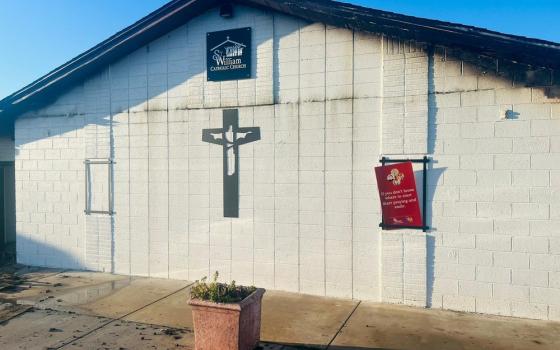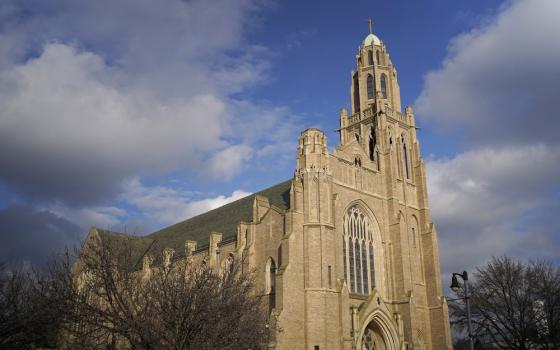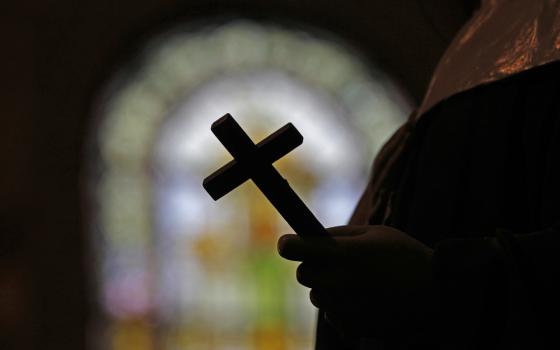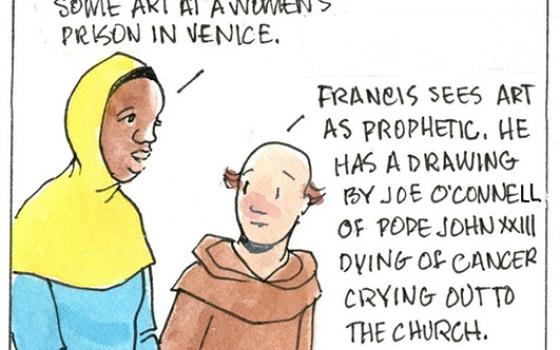TEN AFRICAN HEROES: THE SWEEP OF INDEPENDENCE IN BLACK AFRICA
By Thomas Patrick Melady and Margaret Badum Melady
Published by Orbis Books, $25
One of postcolonial Africa’s major tasks deals with nation-building and sociopolitical transformation. To some political analysts and pundits on Africa, the continent’s most enduring challenge is the lack of formidable leadership. Twenty-seven years ago, Chinua Achebe in The Trouble with Nigeria said, “The trouble with Nigeria is simply and squarely a failure of leadership. ... There is nothing wrong with the Nigerian land or climate or water or air or anything else. The Nigerian problem is the unwillingness or inability of its leaders to rise to the responsibility, to the challenge of personal example which are the hallmarks of true leadership.” Unfortunately, these 1984 words still ring true today, a perennial problem that has created a deep sense of despair in the hearts and souls of people in nations such as Nigeria, Zimbabwe, Côte d’Ivoire, Sierra Leone, Uganda and the Congo.
By contrast, Ten African Heroes brings a ray of hope into the African political landscape. It deals with the abiding influence of Christianity in the political odyssey and legacy of dynamic African leaders such as Kenneth David Kaunda of Zambia, Julius Kambarage Nyerere of Tanzania, Sylvanus Olympio of Togo, William Tubman of Liberia, and Thomas Joseph Mboya of Kenya. These are some of the formidable African leaders discussed in this well-written book. This is not a monograph from armchair theorists; the authors are credible and well-versed in African history, politics and culture. The Meladys’ record in diplomacy, public affairs and civic involvement is impressive. Their requisite field experience -- important for a book such as this -- is shaped by their robust record of diplomatic experience in Burundi, Uganda and the United Nations.
The book’s main thrust is the centrality of Christian values in the political formation and vocation of these African leaders. These values are paramount to their sound transformational perspectives, public policies and international relations, just as they had been to their independence movements.
In a postcolonial and secular world that is often dismissive of religious values and influence, this book seeks to situate the impact of religion in the lives and work of prominent Africans. Indeed, leaders such as Nyerere, Leopold Sedar Senghor of Senegal, and Kaunda advocated a symbiosis of African indigenous traditions and Christian values. Thomas and Margaret Melady present a compelling account of African leadership during a time of intense anxiety and political uncertainty, along with candid biographical information.
The central idea in this book resonates with some of the insights in liberation theology. Any Christian theologian is bound to ask such important questions as: What is the role of the good news amid the situation of death and misery within the African continent? Is it possible to envisage or conceptualize any symphony of hope out of the cacophony of terror there?
Ten African Heroes gives an account of leaders who remained prisoners of Christian hope at a time of uncertainty and doubt. Their perspectives were not a fatalistic eschatological hope expressed in the by-and-by -- on the contrary, they were well-grounded in the subversive joy that compelled them to work for the transformation of the society in the here and now. This is a form of realized eschatology that connects to the hopes and aspirations of the people. Consequently the book is an unequivocal affirmation that Christian values can contribute to a more just and humane world.
What we have here is brilliant testimony to the fact that Africa can change. With leaders who have the will, the ability, the courage and the vision, African nations can experience a resounding rebirth. The scourge of apathy and cynicism that continues to rage in many African nations can be tempered with good governance, transparency and rule of law.
Ten African Heroes concludes with an epilogue on newer African leaders who labored very hard for peace, stability and reconciliation in their nations. They represent the voice and face of a new Africa. Three appendixes contain important lectures, ranging from Senghor’s “Address on the Civilization of the Universe,” and Seretse Khama’s speech on racial reconciliation, both at Fordham University in New York.
In sum, the Meladys provide a compelling response to what can be described as the “credibility conundrum” that continues to face many African leaders today. These contemporary leaders should look back at the trailblazing political initiatives of past statesmen and start to ponder new political discourse and programs that can lead to social and economic transformation. It is the only way forward for many African nations, especially for the ones faced with violent internecine conflicts and strife.
[Akintunde E. Akinade received his doctorate in ecumenical studies at Union Theological Seminary in New York. He now teaches theology at Georgetown University’s School of Foreign Service in Qatar.]







